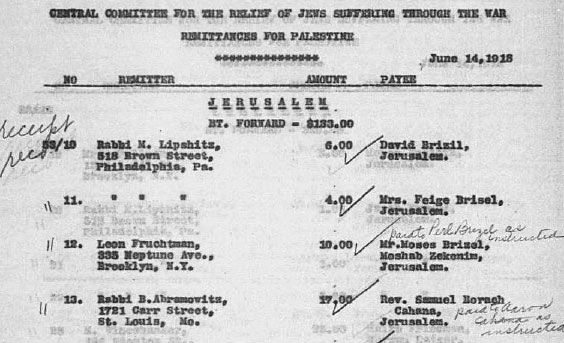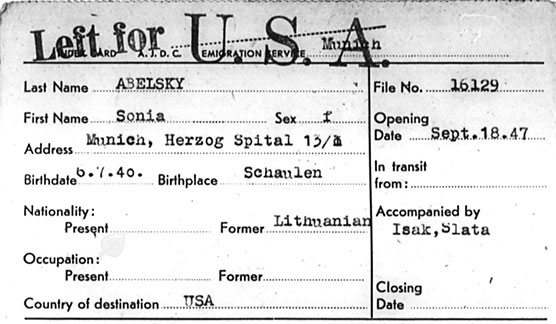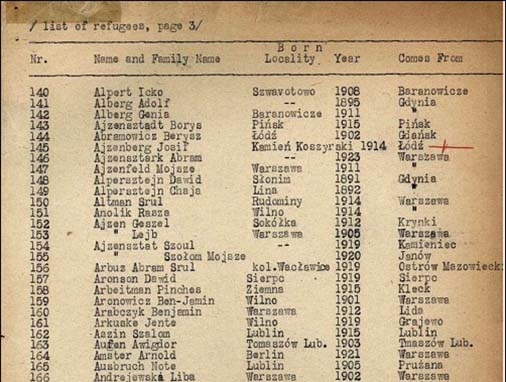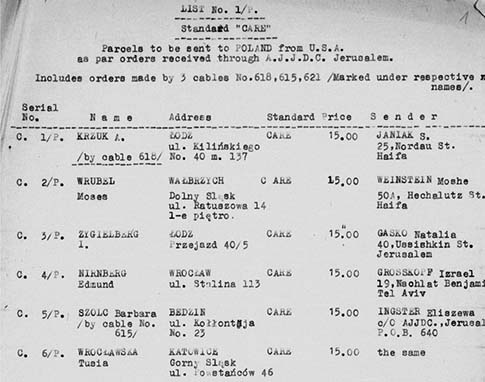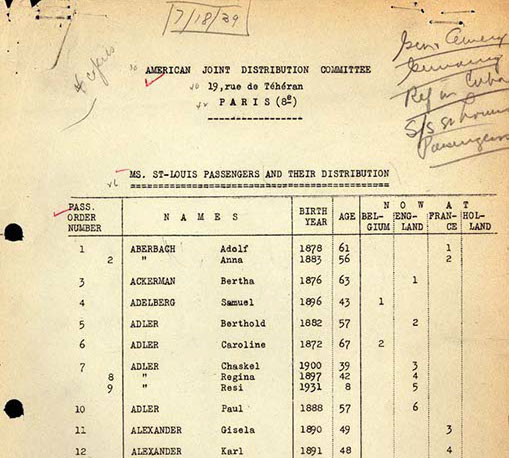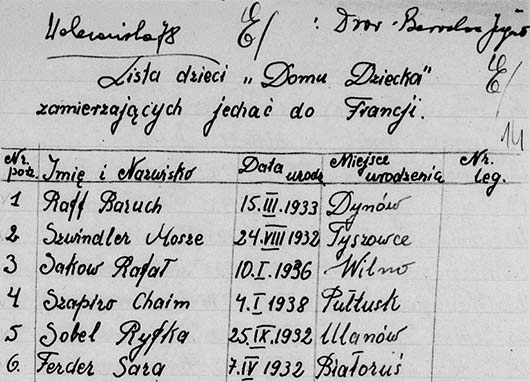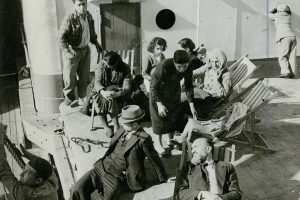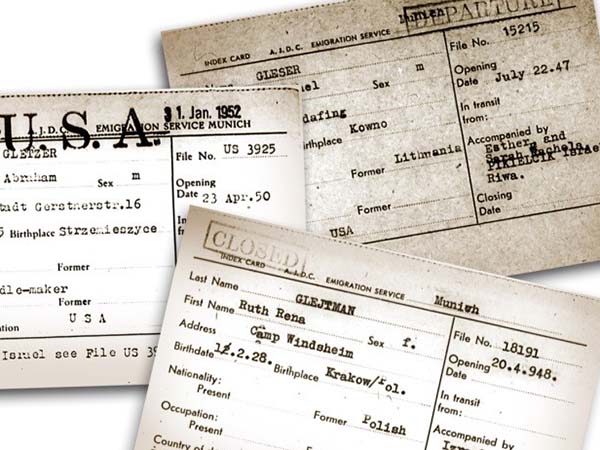
Exploring the Lists in the Names Index
A tool for family researchers
What is included in the JDC Archives Names Index? Can I browse an entire list of a ship’s passengers or refugees receiving aid? The answer to these common questions and more can be found by consulting the Lists in the Names Index page of our website, which we informally refer to as the “List of Lists.”
This page is, in effect, a complete inventory of the contents of our Names Database. Arranged roughly in chronological order, it is organized into five sections: Early Remittance Lists (1915-1919), The 1914-1921 Period, Lists from the Nazi Period and Its Aftermath (1938-1956), Aliyah to Israel (1944-1950), and Records from 1954 Onward (1954-1973). In addition to lists, indexed materials include remittances, sets of index cards, and data from transmigrant files.
The remittance lists are the product of JDC’s Transmission Department, which was established in 1915 to enable individuals in the West to deposit small amounts of money for JDC to remit to their relatives overseas, particularly those living in areas of Europe and Palestine where normal activity had ceased functioning due to the disruption of World War I. Because the lists include the names and addresses of both the remitters and beneficiaries, this is significant material for family researchers that cannot be found elsewhere. Remittance lists included in the Names Index are from Poland, Romania, Russia, and Palestine.
Sets of index cards include JDC Emigration Service records from JDC offices in Munich, Vienna, and Warsaw from the immediate postwar period, totaling more than 93,000 records. These are now being joined by approximately 30,000 cards from JDC’s Emigration Service headquarters in Paris, a project that began in Spring 2019 and has to date added more than 6,000 records created by our dedicated team of volunteers. These emigration records are from the immediate postwar period, roughly 1945-1953. In addition, the Names Index includes 8,200 wartime refugee index cards from JDC’s Barcelona office and about 10,000 cards, also from the Vienna office, of Jews who fled Hungary during the 1956 Uprising.
Long lists included in the Names Index include (right) refugees who fled to Vilna after the Nazi invasion of Poland (more than 9,000 names) and (left) postwar recipients of parcels sent to Western Europe and Poland on request from relatives who placed orders via JDC’s Jerusalem office and via the CARE program in the United States.
The lists and other documents we have indexed are drawn from our text collections. Some come to light when a cataloger draws our attention to it during the course of processing a collection; others have been found by running searches in collections after they have been digitized. For example, we have indexed all lists of European Jewish refugees receiving assistance in Kobe, Japan, and Shanghai, China, which were found in our New York 1933-1944 collection. These lists include passenger lists of ship sailings from Japanese ports to the West, 1940-1941. Among other significant passenger lists are a list of refugees on the ill-fated S.S. St. Louis who received JDC aid (1939) and a set of lists of passengers on the S.S. Serpa Pinto, which made numerous trips from Lisbon to the West from 1941 to 1944. Passenger lists often include personal information such as age or date of birth, location of birth or nationality, and country of destination.
We use several criteria to decide whether or not to include a list in the Names Index. First, the list must document persons who have been helped by JDC in some way—general lists of residents of a town or of survivors would not be included. Second, the list must be substantial enough to warrant the attention and effort of our volunteer indexing team; since it would not be difficult for users of our site to quickly browse a one- or two-page list to see if they recognize any names, it is less worthwhile for us to index such a list than lists of ten or more pages. Third, we generally do not index handwritten lists unless the writing is highly legible.
Each entry on the List of Lists includes the name of the document, a description of the circumstances of its creation, and the sort of metadata indexed (e.g., name, age, location of birth, occupation, destination). The name of the document is followed by a PDF link to the entire document for those who wish to browse through all pages. Sets of index cards and transmigrant file records do not include such pdf links.
The List of Lists grows year by year, as we complete the indexing of a list or set of index cards. Watch for announcements of newly added lists and enjoy exploring!
Were members of your family helped by JDC? For a quick search, try our Names Index API and Tell Us Your JDC Story!
Become a JDC Archives Volunteer!
Our volunteers give one day a week of their time, working in our Midtown Manhattan office. If you live in the New York area and are interested in joining our team of volunteers, please contact us.
